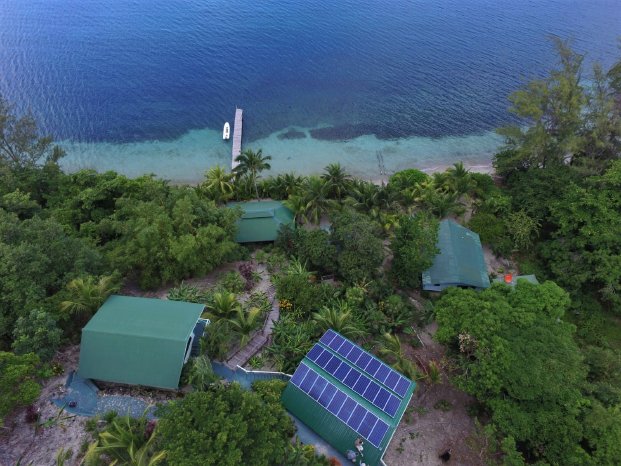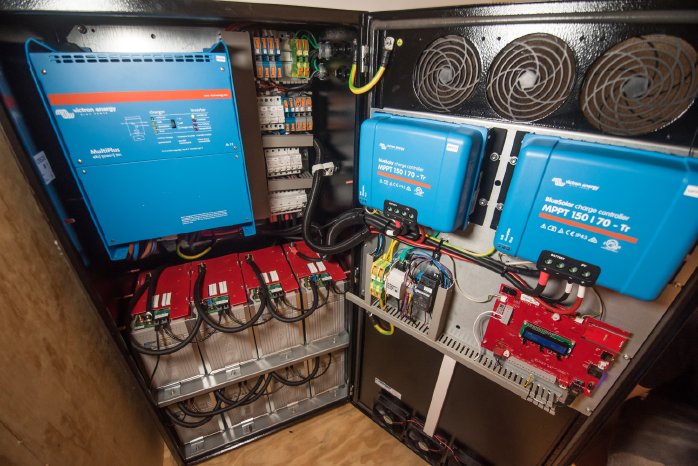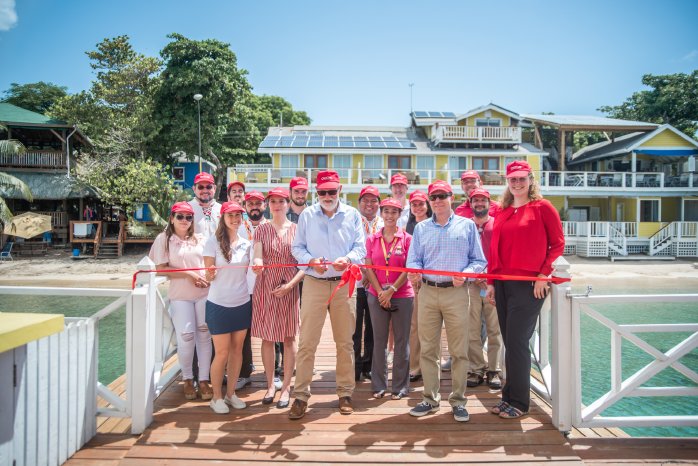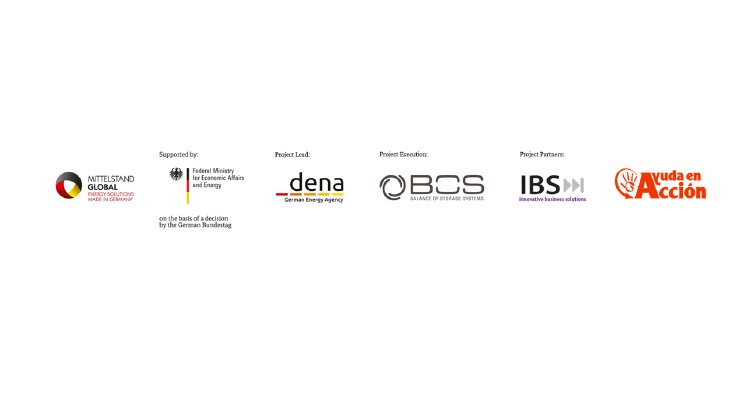„The mayors of other communities are worried when the power goes off during 43 hours. Here we haven't had electricity for 43 years.“ Said Antonio Villalta, the mayor of the community of Juan Francisco Bulnes. Mr Villalta did not want to wait any longer for the expansion of the power grid. Access to reliable electricity 24 hours a day is something the community has never had before, just like over 70 percent of the population in his region of the country.
The community of Juan Francisco Bulnes therefore embarked on a ground breaking pilot project: A solar system with lithium batteries installed on the town hall - initially at a fraction of the total investment cost. The solar system is paid off with savings made through a reduced use of the diesel generator. This financing model is called "Pay as you save" and offers what people in the many off-grid regions as well as in locations with unreliable grid power want: A reliable power supply around the clock, without expensive upfront financing.
A strong team
The consortium has so far implemented a total of five solar projects, with each partner playing its own specific role. On the Honduran side, the partners Ayuda en Acción and IBS have been cooperating for several years. The former is a Spanish NGO with headquarters in Madrid and 22 offices worldwide. The organisation works on issues such as combating poverty, inequality and climate change, mainly aimed at children, young people and women. IBS, as an installer of various environmental technologies, supports Ayuda en Acción in the technical implementation of projects.
IBS also represents the German energy company, BOS-AG. BOS is a manufacturer of solar storage solutions from Neu-Ulm who aims to generate benefits for people, the environment and companies through its products. The BOS company motto is: People, Planet, Profit. The German Energy Agency GmbH (dena), which supports the project, works as an agency for applied energy transition to contribute nationally and internationally to the achievement of energy and climate policy goals.
Starting small, receiving great enthusiasm
The installed systems were co-financed under dena's Renewable Energy Solutions (RES) programme. In addition to the two systems installed on the town halls of Juan Francisco Bulnes and Santa Fé, Colón, three hotels on the Honduran Bay Islands participated in the pilot project as well. A total of five HS Business 10 systems from BOS AG were supplied. Each of the all-in-one systems has 10240Wh lithium storage and the necessary solar electronics, such as a 5 kVA inverter/charger and two MPPT solar charge controllers. It was worth it: "Our involvement in this solar energy project was one of the best business decisions we’ve ever made," explains Captain Brian Rowland enthusiastically. Until recently, the owner of the End of the World Resort in Guanaja was dependent on his generator, but now the solar system takes over almost the entire power supply of the hotel.
Watch the video of the HS business system here.
More than just electrification
The project initiators are not just interested in electrification, they are looking for sustainable and integrative social change. Therefore, part of the projects earnings will sponsor further measures in schools and healthcare centers, for instance environmental education courses. The communities themselves will decide what is most needed. "The inclusion of energy as a link of common interests is a strategic tool for revitalizing the local economy and a psychosocial trigger that brings companies, municipalities and communities together in a common vision of development," explains Roberto Bussi, head of Ayuda en Acción's Honduras office. "The principle of inclusion allows people to feel that they are part of the solution and, as such, to be jointly responsible for primary care in health centres and lighting in schools.”
The first follow-up orders have already been placed. Together with the German Embassy in Tegucigalpa, the Fundación Islas de la Bahía purchased an HS system for their iguana station on the island of Útila. The communities are taking the next steps: After the town halls, schools are now to be electrified as well. Antonio Villalta is delighted: "It would be excellent if this model could be extended to the other institutions".
In the long term, the consortium aims to expand its activities to the Central American market. This will not only involve electrification projects, but also water treatment and waste management solutions planned by the Honduran partners. The offer is directed at entire villages as well as commercial customers. In the short term, the consortium partners will finance further pilot projects with equity capital; however, they are looking for investors who are interested in combining economic efficiency with social and ecological benefits.
Download digital press Kit: https://www.bos-ag.com/en_02/




